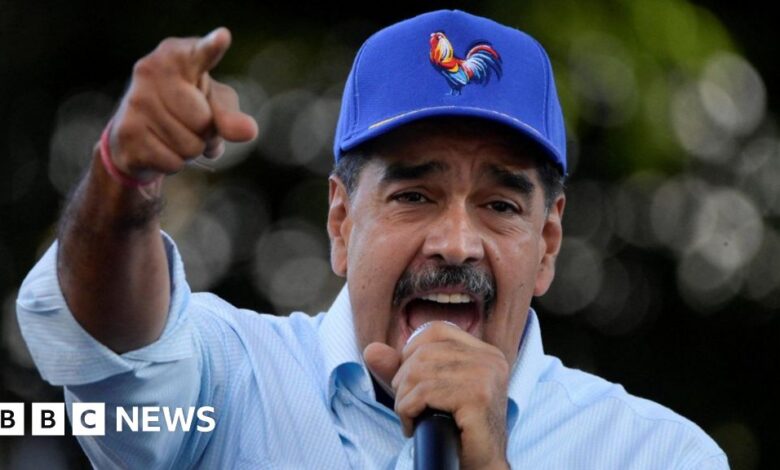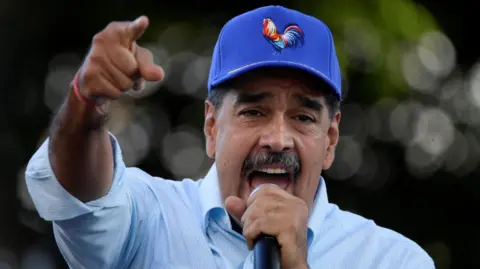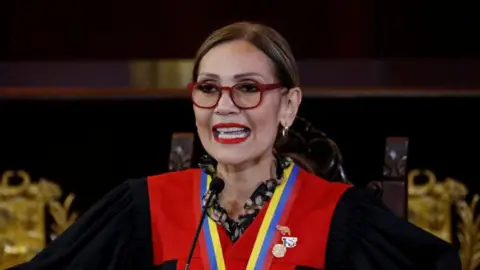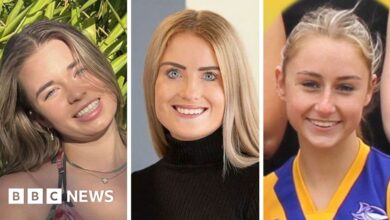Venezuelan court confirms president’s victory

 Reuters
ReutersVenezuela’s Supreme Court has upheld the re-election of Nicolás Maduro as president following allegations of widespread voter fraud in July’s election.
The decision by the Supreme Court of Justice (TSJ) comes amid United Nations warnings that the court lacks independence and impartiality.
TSJ said it had reviewed documents from the country’s electoral body, said Mr Maduro won more than half of the voteand agreed that he had won.
Mr Maduro hailed the court’s ruling on Thursday as a “historic and strong verdict”.
 Reuters
ReutersAnnouncing the court’s ruling, TSJ head Caryslia Rodríguez said: “The electoral documents assessed were irrefutably certified and the results of the July 28 presidential election announced by the National Electoral Council (CNE), where Nicolás Maduro was elected president of the republic, were authentic.”
She said the decision was not appealable.
Marta Valiñas, chair of the fact-finding mission organized by the UN Human Rights Council, said the government had “improperly influenced TSJ decisions” through the use of “direct messages to judges and public statements”.
Francisco Cox Vial, another member of the UN fact-finding mission, said Ms Rodríguez was a member of Mr Maduro’s ruling party and had held elected positions within the party.
Mr Maduro has led the country since 2013 and re-election means he could serve another six-year term.
At least 23 protesters killed in anti-government protests since last month’s election and about 2,400 more have been arrested, the United Nations said.
Protests erupted after the CNE declared Mr Maduro the winner on election night without releasing detailed vote counts.
The opposition said the votes proved their candidate, Edmundo González, had won easily, and they released copies obtained by election observers on the internet.
The documents, which have been reviewed by independent experts and media, show Mr González won 67% of the vote compared to Mr Maduro’s 30%.
Several Western countries have urged the Venezuelan government to fully release the vote count while others, including Russia and China, have congratulated Mr Maduro on his victory.
In addition to the deaths and arrests of protesters in recent weeks, the Maduro administration has also launched an investigation into opposition leaders for allegedly inciting the country’s military to commit crimes.
They have also begun passing a law in parliament that would tighten regulations on non-governmental organizations and force public officials accused of expressing views in support of the opposition to resign.
The 2018 presidential election was widely criticized as neither free nor fair after opposition candidates were jailed, barred from running or forced into exile.

“Nowadays you have to be very careful who you talk to, what you say to people around you,” Dina told the BBC World Service. “They can ask you for your phone, if they see something they think is suspicious, you can be put in jail.”





